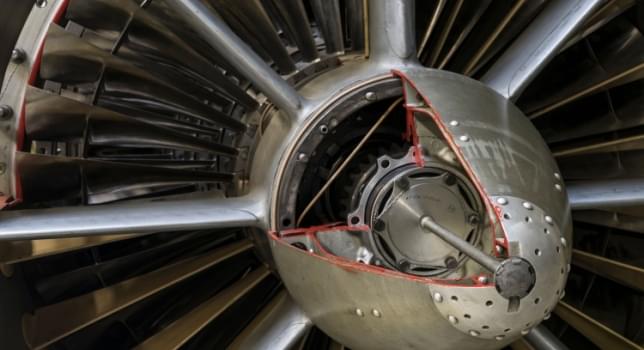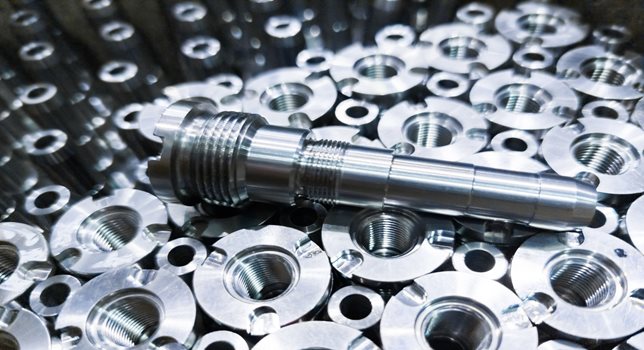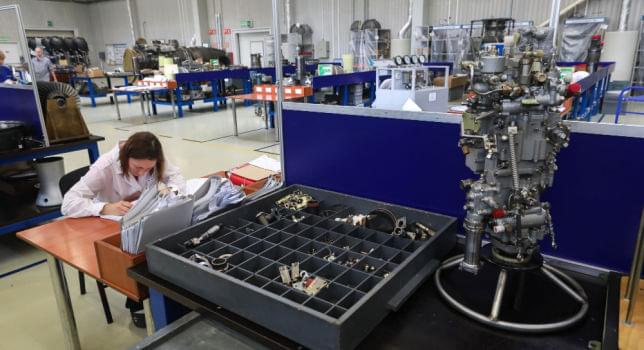In the aerospace industry, the margin for error is nonexistent. Every component, from a simple fastener to a complex engine part, must be accounted for and verified throughout its life-cycle. This level of oversight, known as traceability, is not merely a best practice; it is a fundamental requirement for ensuring the safety, reliability, and airworthiness of aircraft. Traceability is the backbone of the aerospace supply chain, providing a clear history of each part's origin, processing, and distribution.
The AS9120 standard is a quality management system (QMS) specifically designed for aerospace distributors. It builds upon the foundations of ISO 9001 but introduces rigorous requirements tailored to the unique challenges of the aerospace supply chain. One of its most critical functions is to establish and maintain robust traceability systems. This ensures that every part is authentic, conforms to specifications, and can be tracked from its source to its final installation. For distributors, compliance with AS9120 is essential for demonstrating commitment to quality and safety in a high-stakes industry.
This article will explore the pivotal role of the AS9120 standard in maintaining aerospace supply chain traceability. We will examine the specific requirements of the standard, the benefits of its implementation, and its overall impact on the integrity of the aerospace and defense sectors.
Understanding AS9120: A Standard for Distributors
AS9120 is an international standard that defines the quality management system requirements for organizations that procure parts, materials, and assemblies and resell these products to customers in the aerospace industry. This includes organizations that split bulk materials and redistribute them in smaller quantities. Unlike AS9100, which is intended for manufacturers, AS9120 is tailored specifically to the needs and risks associated with stockist distributors.
The primary objective of AS9120 is to ensure that distributors have processes in place to prevent the introduction of counterfeit or non-conforming parts into the supply chain. Given that distributors are a critical link between manufacturers and end-users, their ability to maintain the integrity of products is paramount. The standard addresses several key areas, including purchasing, handling, storage, packaging, and delivery. At its core, AS9120 mandates a system that guarantees parts remain identifiable and their history fully traceable.
Compliance with AS9120 is often a prerequisite for doing business with major aerospace manufacturers and government agencies. It signals that a distributor operates under a controlled and reliable quality system, capable of meeting the stringent demands of the industry.
Key Traceability Requirements within AS9120
AS9120 contains several clauses that directly address the need for comprehensive traceability. These requirements ensure that a part's journey can be reconstructed at any point, providing confidence in its authenticity and quality.
Control of Records
A cornerstone of traceability is meticulous record-keeping. AS9120 requires distributors to maintain detailed records for all products they handle. These records must include:
- Certificates of Conformance (CofC): Documentation from the original manufacturer certifying that the parts meet all required specifications.
- Test Reports: Evidence of any testing or inspections performed on the parts.
- Material Certifications: Records detailing the composition and properties of the raw materials used.
- Purchase Orders and Invoices: A complete paper trail of procurement and sales transactions.
These records must be retained for a specified period, often several years, and be readily available for review by customers or regulatory authorities. This ensures that the history of a part can be verified long after it has entered service.
Product Identification and Traceability
To maintain traceability, each part or lot must be uniquely identified throughout its time with the distributor. AS9120 mandates that organizations establish and maintain procedures for identifying products from receipt through delivery. This includes:
- Marking and Labeling: Parts must be marked with unique identifiers, such as part numbers, serial numbers, or lot numbers. This identification must be preserved during all handling and storage activities.
- Segregation: Conforming and non-conforming products must be clearly segregated to prevent mix-ups. The standard also requires segregation for parts with different modification or revision statuses.
- Chain of Custody: The distributor must maintain a clear "chain of custody" record, documenting the ownership history of the parts from the original manufacturer.
Management of Non-conforming Products
When a part is found to be non-conforming, it poses a significant risk to the supply chain. AS9120 requires a robust process for controlling these products. This involves immediately identifying and segregating the non-conforming items to prevent their unintended use or delivery. A disposition must be determined, which could involve returning the parts to the supplier, reworking them (if permissible), or scrapping them. All actions taken must be thoroughly documented to maintain traceability and prevent the re-entry of faulty parts into the supply stream.
Prevention of Counterfeit Parts
One of the most critical aspects of AS9120 is its focus on preventing counterfeit parts. The standard requires distributors to establish a counterfeit parts prevention program. This program includes:
- Supplier Verification: Procuring parts only from approved or reputable sources.
- Product Verification: Conducting inspections and tests to verify the authenticity of incoming products.
- Reporting: Establishing a process for reporting counterfeit parts to customers and relevant industry bodies.
By enforcing these requirements, AS9120 helps ensure that only genuine, high-quality parts are distributed, reinforcing the overall security of the supply chain.
The Broader Impact of Traceability in Aerospace
The implementation of AS9120 and its traceability requirements delivers significant benefits that extend beyond mere compliance.
Enhanced Safety and Reliability
The ultimate goal of aerospace traceability is to ensure the safety of passengers, crew, and military personnel. By providing a complete history of every component, AS9120 allows for the quick identification and recall of any parts that are later found to be defective. This proactive approach to safety management is essential for preventing catastrophic failures.
Improved Compliance and Risk Mitigation
Adherence to AS9120 helps distributors meet the complex regulatory requirements of the aerospace industry, including those set by the Federal Aviation Administration (FAA) and the European Union Aviation Safety Agency (EASA). By maintaining a transparent and traceable supply chain, organizations can mitigate the risks associated with product liability, recalls, and regulatory penalties.
Increased Customer Confidence
For aerospace manufacturers and MROs (Maintenance, Repair, and Overhaul) facilities, working with AS9120-certified distributors provides a high level of assurance. They can trust that the parts they receive are authentic, fully documented, and meet all quality standards. This confidence is crucial for building and maintaining long-term business relationships.
Your Path to Compliance
In the aerospace industry, traceability is not a choice—it is an absolute necessity. The AS9120 standard provides the essential framework for aerospace distributors to establish and maintain the rigorous quality management systems needed to ensure full traceability. By mandating detailed record-keeping, unique product identification, and stringent controls over non-conforming and counterfeit parts, AS9120 plays a critical role in safeguarding the integrity of the entire supply chain.
For distributors, achieving AS9120 certification is a clear demonstration of their commitment to the highest standards of quality and safety. It enhances their reputation, strengthens customer relationships, and provides a significant competitive advantage in a demanding market. Ultimately, the diligent application of AS9120 principles contributes to the overall safety and reliability of the global aerospace industry.
If your organization is seeking to navigate the complexities of AS9120 certification, expert guidance can streamline the process. A dedicated partner can help you implement a quality management system that not only meets but exceeds the industry's stringent requirements for traceability and compliance.
Contact us today to learn how our expertise can support your AS9120 certification goals, or request a quote to take the first step toward enhancing your organization's quality management system.




